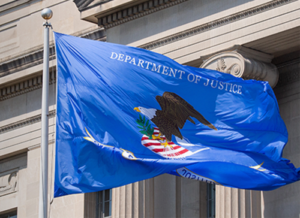
CFPB Shutdown Sparks Controversy: Elon Musk, Legal Battles, and Consumer Risks
On Sunday, acting CFPB Director Russell Vought, appointed by President Donald Trump, ordered the near-total shutdown of the consumer watchdog agency. The CFPB shutdown came with directives to halt investigations, rulemaking, and enforcement activities. Employees were instructed to vacate the headquarters for the week, effectively paralyzing the bureau’s operations.
This unprecedented move has sparked legal backlash, with the National Treasury Employees Union filing two lawsuits to block actions by the Department of Government Efficiency (DOGE), an Elon Musk-led initiative that aims to streamline government operations.
Why It Matters
The CFPB, established in the wake of the 2008 financial crisis, plays a critical role in protecting consumers from unfair and predatory financial practices. With the agency sidelined, billions of dollars in consumer debt could be left unregulated, increasing risks for everyday Americans.
Adding to the controversy, DOGE has reportedly granted Musk and his team access to sensitive CFPB systems, raising concerns about conflicts of interest.
 Elon Musk’s Role and Potential Conflicts
Elon Musk’s Role and Potential Conflicts
Musk, a billionaire entrepreneur and owner of X (formerly Twitter), has long advocated for reduced government oversight. His recent tweet, “CFPB RIP,” alongside a tombstone emoji, signaled his approval of the agency’s shutdown.
Musk’s company X is preparing to launch a new digital wallet and peer-to-peer payment service in collaboration with Visa. The CFPB’s prior oversight of digital payment platforms like Apple Pay and Google Pay would have extended to Musk’s venture—oversight now absent due to the bureau’s closure.
Critics warn that Musk’s access to sensitive data through DOGE gives his company an unfair market advantage, further eroding trust in government impartiality.
Legal Battles and Broader Implications
The legal fallout has been swift:
- Unions Strike Back: The National Treasury Employees Union filed lawsuits seeking to block DOGE’s access to employee information and internal systems.
- Constitutional Concerns: Legal experts argue that Vought’s directive undermines Congress’s intent when creating the CFPB as an independent agency mandated by law.
- Data Privacy Risks: With CFPB systems compromised, there are heightened concerns about misuse of consumer data.
Visa and X’s Ambitious Partnership
Visa’s partnership with Musk’s X positions the payment giant to be a major player in digital finance, enabling users to link debit cards and make instant transfers via the “X Money” digital wallet.
Without the CFPB’s regulatory oversight, critics fear that consumer protections will take a backseat to rapid financial innovation.
Conclusion
The CFPB shutdown under Trump’s administration, driven by Musk’s DOGE initiative, represents a seismic shift in the balance between government regulation and private enterprise. As legal challenges mount, the implications for consumer protection, data privacy, and corporate influence over federal functions remain uncertain.
While this may pave the way for financial innovation, the cost could be diminished safeguards for American consumers.

